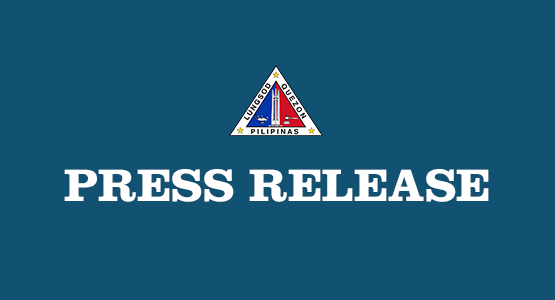
The Quezon City government has formed the Delta Variant Task Force to prepare for a possible surge in Covid-19 infections resulting from the Delta variant first detected in India, even as the city’s COVID-19 positivity rate has declined to 5%.
The Task Force has identified key areas to concentrate on, including revisiting the city’s disease surveillance, active case finding and contact tracing capacity; its testing capability and the efficiency of its molecular laboratory in processing specimens; reviewing its isolation and quarantine protocols and the status and bed capacity of its HOPE facilities; and assessing equipment and manpower resources of hospitals handling moderate to severe cases.
Task Force Disiplina was also ordered to ramp up monitoring and inspection, to ensure that minimum health protocols are followed in all public places.
According to the OCTA Research Group, the city’s positivity rate, which was previously at 6% since the week of June 22-28 has now reached the rate set by the World Health Organization at which infections are less likely to occur, and is even lower than the prevailing NCR rate of 6%.
“This is good news for us. We were at 5% a week before the surge happened last February and March. This means that our cases and transmissions are well-monitored and controlled. We hope that this positivity rate shall continue to dip in the coming weeks,” Mayor Joy Belmonte said.
OCTA also reported that the average number of cases per day in the city has decreased to 123 from 141 cases last week. The reproduction number is at .86, while the average daily attack rate per 100,000 is 3.91, also lower than the week before.
Dr. Guido David, OCTA Research Fellow, shared that cases in QC continue to remain stable, similar to the rest of NCR.
“We are not seeing an alarming trend but a generally flat trend in NCR. Quezon City is, in fact, one of the local government units with incidence lower than 5 per day,” Dr. David said.
The city remains vigilant through its extensive testing and aggressive contact tracing. For the week of July 4-10, the city conducted 4181 PCR tests per day while the contact tracing rate or the number of contacts traced per positive patient is now at 28.3.
Mayor Belmonte shared that the Department of Health recognized Quezon City as one of the cities with the best contact tracing efforts.
“We are proud to share this because it has been a continuous effort since day 1. Our army of contact tracers are doing their best to help identify possible infections and this helps in mitigation because eventually, we will be able to test and isolate them,” Belmonte said.
###







